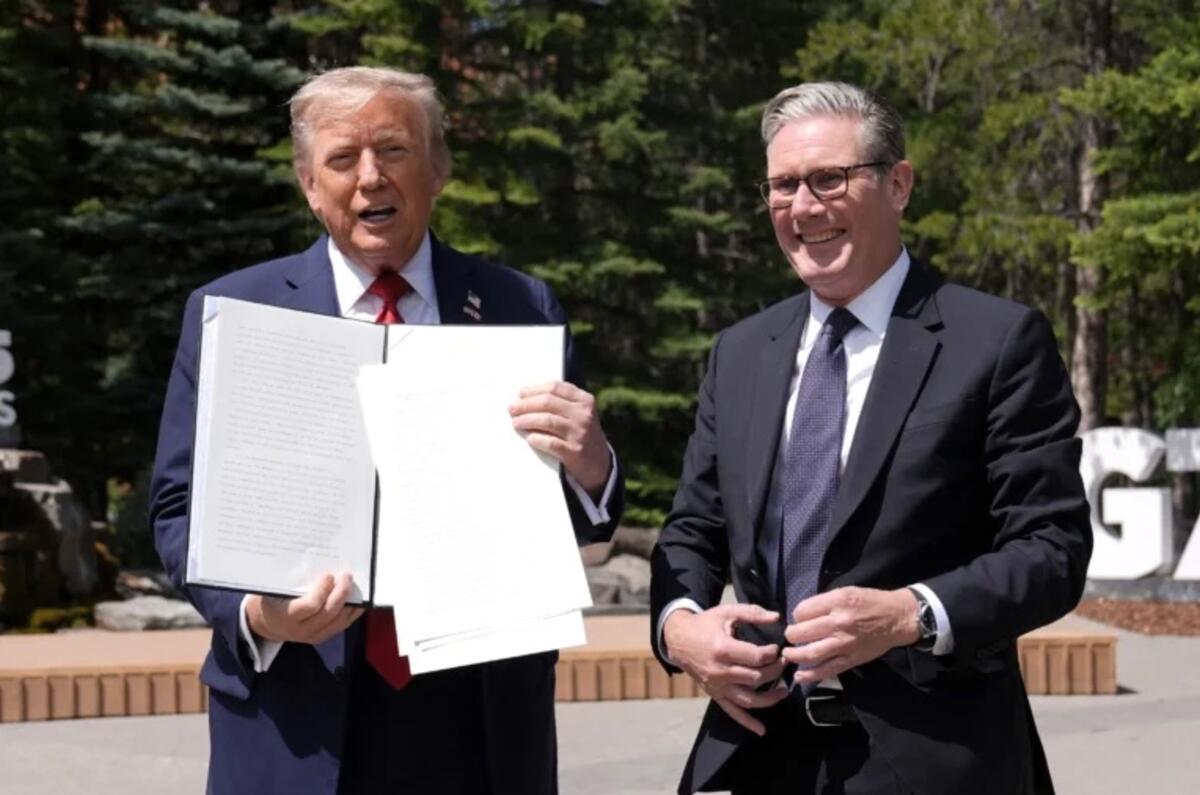US president Donald Trump and UK prime minister Keir Starmer have signed the deal that rubber stamps the UK's reduced 10% levy when importing cars to the US.
As agreed last month, UK-made vehicles will be hit with a reduced tariff for the first 100,000 cars that enter the US.
It follows more than a month of negotiations between British and American officials after Trump announced sweeping import tariffs on foreign-made products, including a 25% tariff on new cars.
All tariffs were due to go into effect on 1 April, but a 90-day reprieve was given so that negotiations could take place.
The two leaders announced signing the order on Tuesday during their visit to the G7 summit in Canada. Starmer called it "a very important day" for both countries.
Details on the new deal are still currently sparse, but the US confirmed that the 10% tariff – which brings it in line with the levy on other foreign goods – will apply to "100,000 cars", suggesting that anything over that number will be hit by the higher 25% rate. Previously, before Trump's March announcement, the tariff was 2.5%.
When it was announced in May, Starmer said the 10% rate represented "a huge and important reduction" and confirmed that "we have scope now to increase that quota; this is not final".
Last year, the UK sent some 102,000 cars to the US. The US is the British car industry's second-largest export market, behind the EU. It received 27% of all UK-made vehicles in 2024, worth some £9 billion a year.
No details were given on the proposed 25% tariff on car parts, which was due to come into force in the coming months.
New deals on food, chemicals, machinery and industry have also been struck. Tariffs on steel and aluminium have been removed.
The UK is the first nation to reach an agreement with the US following Trump's tariff announcement in March. China will be next, according to American officials.
Announcing the deal from the White House, Trump said: "I’m thrilled to announce a breakthrough trade deal. The agreement with one our closest and most cherished allies.
"Final details are being written up and will be detailed in the coming weeks."
He added that the deal removes many unspecified UK tariffs that “unfairly discriminated” against the US, saying: “They are opening up their country. Their country is a little closed."
Starmer said: "This is a really fantastic, historic day – a real tribute to the history we have of working together. This [deal] is going to boost trade."
In response to the news, Society of Motor Manufacturers and Traders boss Mike Hawes said: "The agreement to reduce tariffs on UK car exports into the US is great news for the industry and consumers.
"The application of these tariffs was a severe and immediate threat to UK automotive exporters, so this deal will provide much needed relief, allowing both the industry and those that work in it to approach the future more positively."








Join the debate
Add your comment
Store management games test your strategy, time management, and resource skills while offering an escape into the lively world of running a store. Today, let’s look at a twist on this genre: wordle unlimited , an addictive word game that blends guessing fun with smart choices to boost your score.
Not convinced that this so called deal will stick, especially potential backlash to importing US meat. Starmer's team would be better off spending time improving trade links with the EU, Canada, etc. EpyTV
Amazing job thanks for sharing. https://olivegardenmenuguide.com